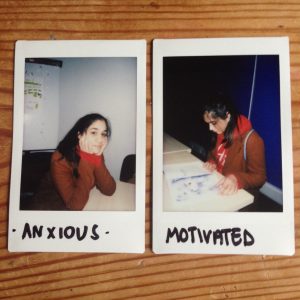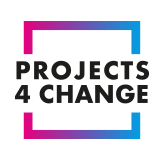Did you know that dreams can help you to understand your fears and anxieties as well as explore your hopes for the future?
I was given a copy of The Teen Breath Magazine by my youth worker, I’m writing this blog as part of My Change Maker Volunteer Programme with Projects4Change with the aim of helping other young people understand their emotions leading to better mental health.
I was instantly attracted to the Magazine it was illustrated in a way that reminded me of a calm day, it has a blue front cover and airy feel. The magazine is aimed at young woman and girls aged 12-18 years and is full of stories and articles that can help you in your everyday life.
I’m writing about the section on understanding dreams, I want to spread the word about the importance of looking after your mental health. It is so important to me because sometimes in new situation I can feel anxious.
I would recommend the magazine to other young people who want to understand their feelings better and be mentally healthier as there are lots of practical tips to get you started.

Esha at our first Change Makers meeting
Why we dream is unknown, all we know is that it happens when we’re deeply asleep.
This is because the subconscious – the part of the mind that notices and remembers pictures, feelings and words even when you’re not actively trying to remain awake and processes the events of the day by using pieces of this information and turning it into dreams.
DREAM SYMBOLS
Dreams have meanings and reflect your experiences and feelings. For example, a locked door could mean loneliness, a sunny day may mean joy and supernatural characters / “monsters” may just personify your anxiety. If you’re worried about your dreams, you should talk to someone about it, feeling lonely or sad sometimes is ok, but you shouldn’t feel like that all the time, if you do it’s time to talk it through with an adult you trust.
PREDICTING THE FUTURE
Dreams can be a reflection of what’s happening in your life at the moment. Sometimes one may feel a sense of ‘déjà vu’.
There’s no scientific explanation for why people experience ‘psychic’ dreams- revealing something that may happen in the future.
In other cases it’s just you remembering random information.
REMEMBERING DREAMS
Up to 90% of dreams are forgotten in the first few minutes after waking up. If you want to remember your dreams, you may want to keep a pen and notepad by your bed and write dreams up when you awake from one.
It may seem insignificant but dreams aren’t all nonsense and they may have hidden meanings and be a door for inspiration.
TYPES OF DREAMS
DAYDREAMS – occur when you’re semi-awake and shouldn’t be considered as warning thoughts or silly fantasies. Daydreams help you identify what you want or hope to happen. It’s actually an effective technique athletes use to visualise triumphs.
NIGHTMARES
People struggle to remember dreams, it’s the opposite with nightmares. This is because their strong negative emotional responses – disturbing, frightening or upsetting – can rouse you from sleep and cause the feeling to stay with you for some time.
This makes it difficult to go back to sleep. Like dreams, nightmares are the voice of the subconscious mind.
The best thing to do is not ignore them and instead try to understand what may be worrying you in real life.
Nightmares are a way of letting go of your fears and anxieties.
LUCID DREAMS
A lucid dream happens when you’re asleep but become aware that you’re dreaming. It’s a peculiar but wonderful experience and you can fulfil your dreams and fantasies.
Scientists believe everyone has potential to have lucid dreams and explore the realms of possibilities in their own dream world ~
If you are a young person and worried about your mental health contact Young Minds for further information.
If you would like to read Teen Breath click here.
Here at Teen Breathe, following in the footsteps of our older sibling, Breathe, we believe it forms the basis of a happier, healthier, more fulfilled life. And we’re putting you centre stage. From social media to sport and making friends to making flowers, we’ll have tips, exercises and ideas to help you explore how paying attention to everything you do, being curious and staying positive can bring out the very best of You – a person who’s comfortable and proud in their own skin, is open to ideas and follows their dreams. And when we’re not doing that? Teen Breathe will be in pamper mode – big time.
Or you could get your youth worker to buy a shared copy, some of the games and tasks can be done as a group.
Happy Dreaming, From Esha


Recent Comments